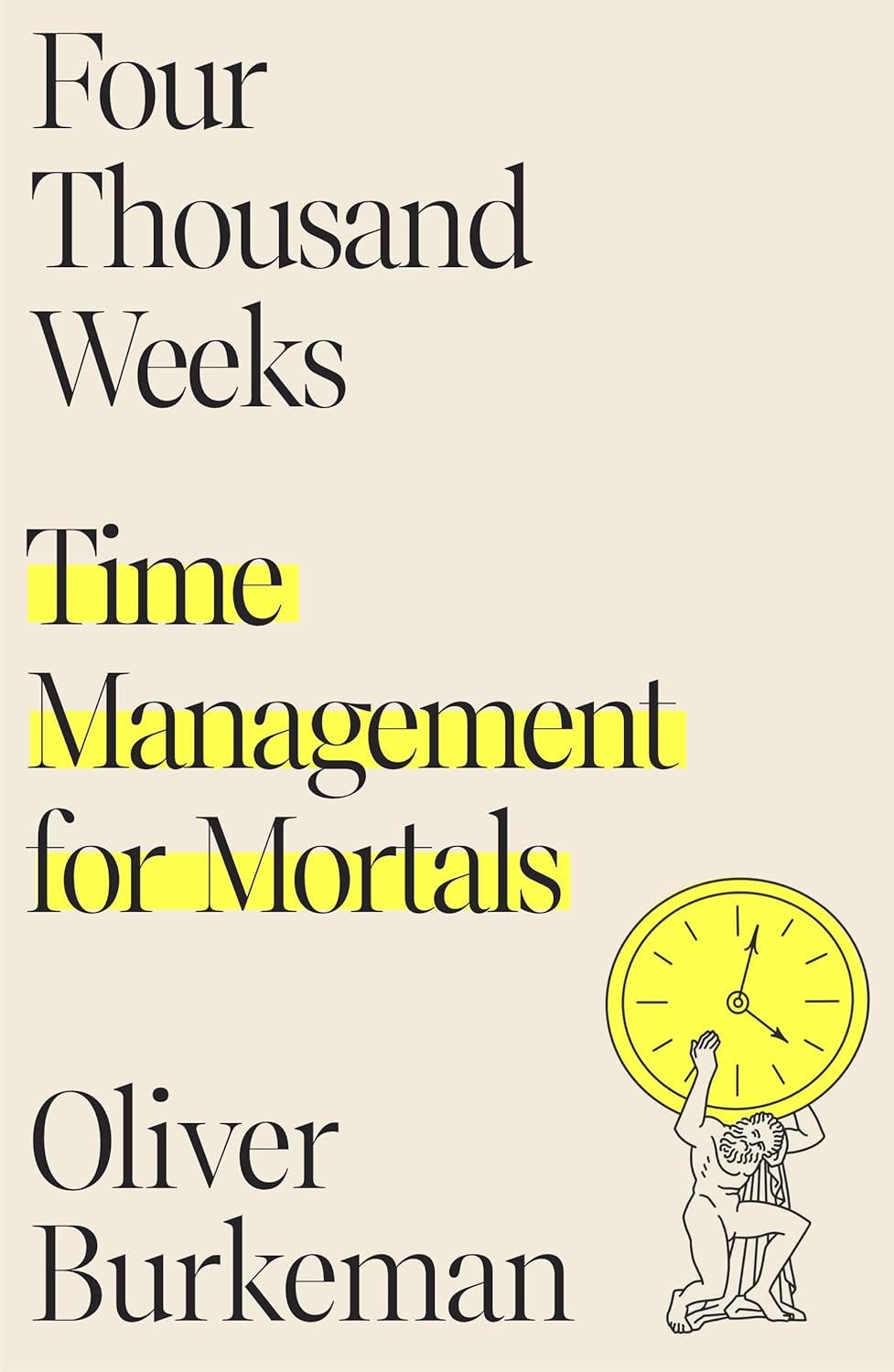Uncommon Business Bulletin #5
More effective meetings // Book recommendation // The 11 laws of showrunning // Are you sleeping on HSAs? // Kyla Scanlon // Tim Urban // UK says Toodle-oo to Coal, and more
Uncommon Business Bulletin #5
The Uncommon Business Bulletin is a weekly roundup of ideas, news, links, and resources for mission-driven businesses, leaders, employees, entrepreneurs, and curious humans.
1. The VRR Framework for Effective Meetings
One of our clients at Lumo Group is a Founder/CEO with a small team working to get the company to the next level.
During our work together, we determined that a key step to achieving the company’s goals is designing more effective leadership meetings.
We are currently working to implement our VRR Meeting Framework:
VRR: Values, Rules, and Roles: The Key Ingredients of Successful Meetings
Values: What are our internal company values for how we work together? Some examples might be: “We give each other the benefit of the doubt.” Or “We encourage discussion and debate.” (These are actual values I am borrowing from Green Zebra Grocery, where I used to work. I love both of them so I borrow them often.)
Rules: What are the ground rules for our meetings? Ground rules are guidelines that all meeting attendees must explicitly agree to in order to be a part of the leadership team and attend the meeting. For example, one that we came up with for this client was: “When giving feedback, we focus on what is best for the company and our larger mission.”
Roles: Finally, what role will each meeting participant play? Examples: Facilitator, Devil’s Advocate, Note Taker and Action Item Tracker. Not every person needs a formal role, but there are some key ones that are good to assign. It can be helpful to rotate roles to avoid role fatigue and give everyone a chance to try out each role.
How are meetings at your organization? Are they as effective as you would like?
If not, consider what it might be like to design a VRR framework for your organization. (A tip: We recommend that you, as the leader, complete a first draft, and then bring to the team for additions and refinement, rather than coming with a completely empty page).
2. The 11 Laws of Showrunning
I came across an essay from 2016 by screenwriter Javier Grillo-Marxuach titled The Eleven Laws of Showrunning.
While the author wrote it with his specific industry in mind, I think it has great nuggets that all businesses and leaders could draw from.
It’s fairly long (and let’s be real, you probably won’t read it all) so I will summarize the 11 laws for you:
“It's All About You - Stop Making It All About You”: Recognize your power and responsibility, but don't let ego get in the way of empowering your staff.
“Know Your Show and Tell Everyone What It Is”: Clearly communicate your vision to your team.
“Always Describe a Path to Success”: Provide clear directives and goals for your team.
“Make Decisions Early and Often”: Avoid decision aversion and commit to ideas quickly.
“Do Not Demand a Final Product at the Idea Stage”: Allow ideas to develop through the creative process.
“Write and Rewrite Quickly”: Produce scripts [read: work outputs] efficiently to keep production moving.
“Track Multiple Targets Efficiently by Delegating Responsibility”: Empower your writers to handle various aspects of production.
“Resist the Siren Call of the ‘Sexy Glamorous Jobs’": Focus on your core competency and job rather than getting distracted by the jobs and tasks of other people.
“Expect Your Staff to Perform at Varying Levels of Competence”: Understand and manage the different capabilities of your team members.
“Deliver Good and Bad News Early and Often”: Maintain transparency and open communication.
“Share Credit for Success to a Fault”: Be generous in acknowledging the contributions of your team.
If these piqued your interest, you can print out the full 25 page PDF and enjoy it over a leisurely lunch break.
3. Book Recommendation
I read Four Thousand Weeks: Time Management for Mortals by Oliver Burkeman a couple of years ago, and this week I was reminded of how much I loved it when a friend sent a text letting me know he had just picked it up.
Four Thousand Weeks is both a productivity and an anti-productivity book. The cold hard fact is that we are going to die with unfinished to do lists. We each have limited time (approximately 4000 weeks as it turns out). Every day we must wake up and confront the existential and mundane question: “How should I spend my hours today?”
This book is simultaneously a philosophical treatise and an actionable guidebook. It is, dare I say, worth your time ;-)
4. Are you sleeping on HSAs?
I am surprised by how many people I meet who don’t understand how many tax benefits one can get from an HSA. It may be the single most tax-advantaged account in the country.
With most tax-advantaged accounts you either get taxed when you make contributions (i.e. the contributions you make are from your post-tax income or wages, such as with a Roth account) or you get taxed when you make withdrawals (i.e. with a traditional 401k).
With an HSA, on the other hand, there are no taxes on either end: Contributions are pre-tax, and withdrawals are untaxed.
But that’s not all!
If you own a business, there is another potential benefit: You can run your HSA contributions through your payroll, and those contributions are included as taxable wages on your W-2, but they are not subject to FICA taxes like regular wages are. However, you can still deduct the HSA contributions on your personal tax return, offsetting that income for federal income tax purposes.
Thus, if your company were to theoretically contribute the annual maximum amount to your HSA through your payroll ($8300) and lower your W2 income by the same amount (but make up for it in distributions), then you would be saving an additional $1270 in taxes (the 15.3% FICA taxes that you otherwise would be paying on that $8300).
A few other benefits of HSAs worth noting for the uninitiated:
Unlike an FSA, your funds never expire. You can make HSA contributions today and then spend them at any point in the future.
There is no time limit for past reimbursements. You can reimburse past eligible medical expenses from past years, so long as you have proper receipts.
You can invest your HSA in the market, so all the contributions you make today can grow and compound tax free for decades.
If you somehow end up having more in your HSA than you need to pay for HSA eligible expenses, you can just treat the account like a normal 401k/IRA: All withdrawals after the age of 65 that are NOT for eligible medical expenses are subject to income tax (just like your traditional 401k withdrawals), but there are no additional penalties.
Of course, you must have an eligible High Deductible Health Plan in order to be eligible to contribute to an HSA, so it’s certainly not for everyone. But, if you think an HDHP might work for you and your family and/or if you run your own business then it may be worth taking a good look at HSAs.
We’re not tax advisors BTW, so always consult your own CPA (if you have one).
5. Worth Clicking
Good Wall Street Journal Profile of Kyla Scanlon (paywalled) , “The 27-Year-Old Economic Adviser for Gen Z.”
Scanlon, 27 years old, is breaking all the rules for a career in finance and doing things her own way. Forget grinding away for years on Wall Street or getting a Ph.D. in economics. Young people pay attention to her analysis of topics ranging from monetary policy to the housing market to the business of dating apps, all delivered via TikTok, Instagram, X, YouTube, Substack and her podcast. She is perhaps best known for coining the term “vibecession” in 2022, to describe the disconnect between economic data and consumer sentiment. We weren’t in a recession, but Americans felt down about the economy. The vibes, she observed, were off.
For non-paywalled content, you can sub to Kyla’s newsletter here, and you can find links to all her socials on her website. She was also recently on the Conversations with Tyler pod, which is in our regular queue.
The UK, which is the birthplace of coal power, is shutting down its last coal powerplant, and ahead of schedule. (The BBC)
The UK was the birthplace of coal power, and [now] it becomes the first major economy to give it up…The first coal-fired power station in the world, the Holborn Viaduct power station, was built in 1882 in London by the inventor Thomas Edison - bringing light to the streets of the capital… From that point through the first half of the twentieth century, coal provided pretty much all of the UK’s electricity, powering homes and businesses….In 2010, renewables generated just 7% of the UK’s power. By the first half of 2024, this had grown to more than 50% - a new record.
Tim Urban: Idea Labs vs Echo chambers
“In Idea Lab culture, people love to play with ideas and disagree, and no one takes it personally when someone challenges their idea. In Echo Chamber culture, where everyone always agrees on the sacred topics, disagreement is seen as an insult.
That’s all for today folks.
Enjoy your week. Life is beautiful. Do good work. Etc.
Peter & Keeley








